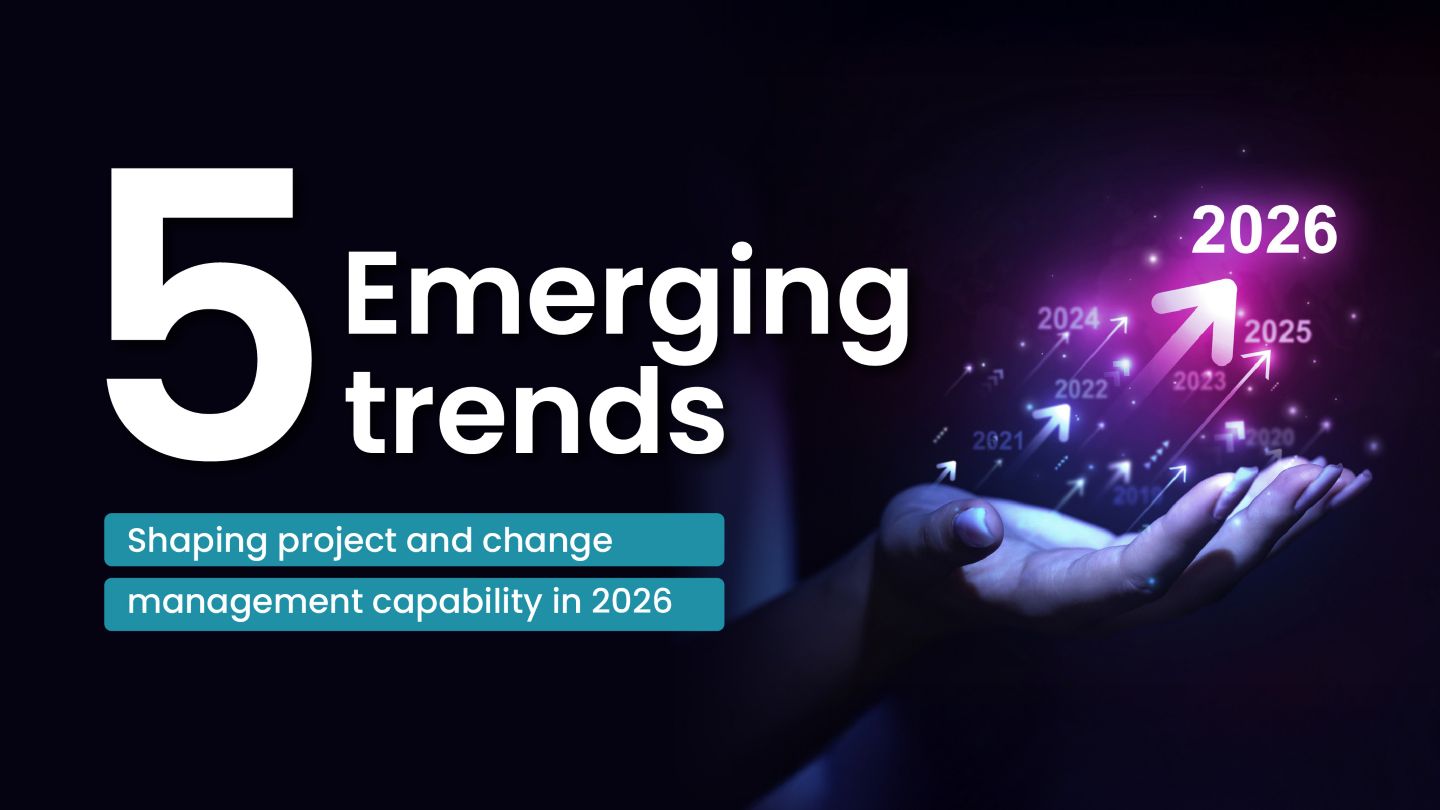Project management trends to watch in 2025

From the growing demand for soft skills to the escalating importance of cyber resilience, project professionals will need to adapt to a diverse range of trends shaping the industry in 2025. Mike Boutel, Head of Training at PM-Partners, shares his predictions for the key areas likely to drive change in the coming year.
The project management space has always been at the forefront of innovation, offering a unique vantage point on wider industry developments. Projects frequently act as microcosms for broader organisational shifts, and the trends outlined below will not only influence the practice of project management but also have far-reaching implications for businesses at large.
Here are the areas to watch in 2025 and how they might impact project management and delivery within organisations, while shaping the broader world of work.
1. The growing importance of soft skills (or power skills)
In an increasingly hybrid and tech-driven world, the demand for soft skills is reaching new heights. Project managers must excel at interpersonal communication, leadership, emotional intelligence and adaptability to navigate workplace dynamics effectively. These ‘power skills’ are essential for managing diverse teams, resolving conflicts, and fostering collaboration in complex environments.
As technology takes over repetitive tasks, project managers are shifting their focus to strategic decision-making and people-oriented challenges. Emotional intelligence, in particular, is critical for building trust and maintaining team cohesion in virtual and in-person settings. Organisations investing in soft skills training will see significant returns in the form of stronger project outcomes and higher employee satisfaction.
Supporting this trend, a report by Deloitte Access Economics predicts that soft-skill intensive occupations will account for two-thirds of all jobs in Australia by 2030, underscoring the growing importance of these skills and competencies in the workforce.
2. Cyber resilience in project management
With cyber threats growing in sophistication, cyber resilience is no longer the sole responsibility of IT departments. Project managers are increasingly tasked with integrating cyber security measures into their delivery frameworks. From data protection to securing digital tools, project teams must work closely with cyber security experts to ensure robust defences are in place from project inception to completion.
As well as increasing their overall cyber literacy, the ability to anticipate and mitigate cyber risks specific to their domain is becoming a core competency for project professionals. In 2025, expect a stronger emphasis on cyber security training for project managers, as organisations aim to safeguard sensitive project data, maintain business continuity and protect their brand and corporate reputation.
3. AI and generative AI in project workflows
A recent survey from Deloitte AI InstituteTM revealed that 79% of Australian business and technology leaders expect generative AI (gen AI) to drive substantial transformation within their organisations and industries over the next three years. In the project sphere, these tools will go beyond automating routine tasks to support creative problem-solving, strategic forecasting, and dynamic communication. For example, gen AI can assist project managers by generating detailed project plans, simulating risk scenarios, and drafting stakeholder reports, presenting significant opportunities for innovation and productivity improvement.
It’s worth noting, however, that in the same report, 49% of respondents pointed to a lack of technical talent and skills as the biggest barrier to adoption, highlighting the importance of education and training in unlocking gen AIs potential. Certainly, here at PM-Partners, we’ve already seen incredibly demand for our Generative AI for Project Managers and Generative AI for Business Analysts courses.
4. Agile maturity beyond IT and projects
Agile methodologies are no longer confined to IT departments or traditional project settings. In 2025, agile will become an integral part of organisational culture across diverse industries such as healthcare, construction, and public services. This evolution reflects a broader shift towards flexibility and responsiveness in the face of rapid change.
Organisations are increasingly adopting hybrid models, blending agile with traditional methodologies to suit specific project needs. Project managers will play a pivotal role in fostering an agile mindset and ensuring successful implementation beyond project teams.
5. Sustainability as a core principle
As global attention on environmental, social, and governance (ESG) goals intensifies, sustainability is becoming a central consideration in project planning and execution. Project managers are expected to embed sustainable practices into their methodologies, aligning project objectives with organisational and societal values.
In 2025, project teams will focus on reducing waste, optimising resource usage, and delivering outcomes that contribute to long-term environmental and social benefits. Sustainability is no longer a ‘nice-to-have’ but a strategic imperative. This emphasis is evident in Australia’s commitment to the United Nations’ 2030 Agenda for Sustainable Development, highlighting the country’s dedication to integrating sustainability into various sectors, including project management.
6. Focus on D&I in project teams
Diversity and inclusion (D&I) are gaining traction as organisations recognise their impact on innovation and problem-solving. Diverse project teams bring varied perspectives that enhance creativity and decision-making, leading to better project outcomes.
In 2025, project managers will be expected to champion D&I initiatives, fostering inclusive team cultures and addressing biases. By creating environments where all team members feel valued and empowered, organisations can unlock the full potential of their workforce.
7. Hybrid project management models
The hybrid approach to project management, combining predictive (Waterfall) and adaptive (Agile) methodologies, will continue to gain momentum in 2025. This model allows project managers to tailor their approaches based on the unique requirements of each project, offering both structure and flexibility.
For large-scale, multidisciplinary initiatives, hybrid models provide the best of both worlds: the precision of traditional methods and the adaptability of agile practices. Project managers will need to be proficient in both approaches to effectively lead complex projects. Likewise, today’s PMO must be able to strike a balance between having a clear governance structure and oversight and allowing teams the flexibility to innovate.
As organisations grapple with rapid technological advancements, evolving workplace expectations, and global challenges, project managers remain at the forefront of change. By staying ahead of these trends, project professionals can drive innovation, improve delivery outcomes, and shape the future of their organisations.
Prepare your project team for the challenges and opportunities of 2025. PM-Partners offers comprehensive training, capability uplift, and advisory services to ensure your delivery stays on track. To learn more, contact us online or call 1300 70 13 14 today.







